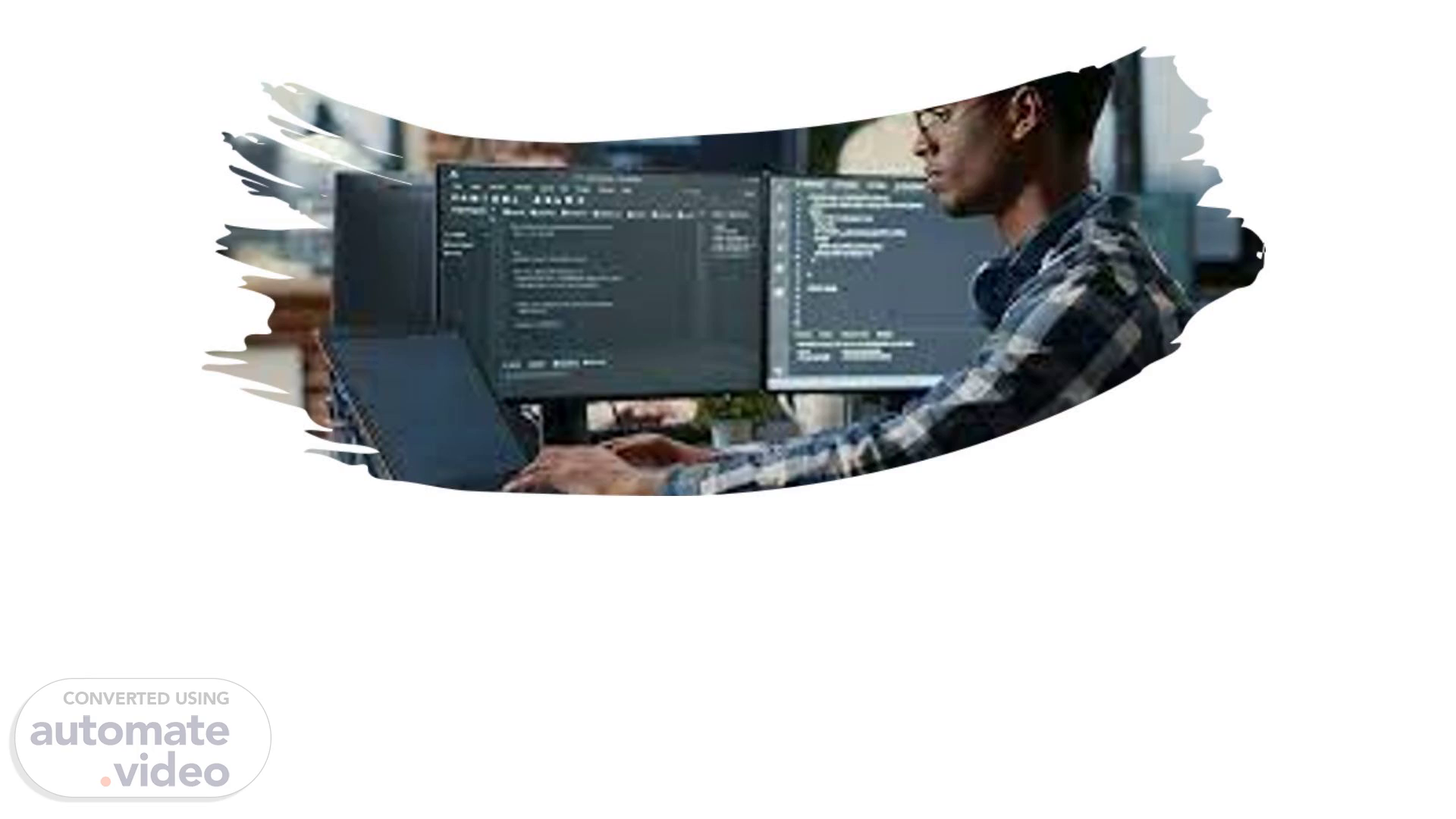Scene 1 (0s)
A programmer. Interview. [image] Software Engineer vs Programmer University of Phoenix.
Scene 2 (8s)
Programmer. Salary: $40,000 to $110,000 a year Responsibility: Write, modify, and test code and scripts that allow computer software and applications to function properly. Workload 50 to 60 hours Vacation: 10-30 days per year.
Scene 3 (23s)
Tell me, what is your job title and what are your job duties?.
Scene 4 (1m 1s)
[Audio] I went to lasalle. Where did you go to school?.
Scene 5 (1m 9s)
[Audio] For me, it's a bit of both. Education laid down the foundational understanding of programming concepts, algorithms, and languages. However, experience has been equally vital—it's where I got to apply that knowledge practically, troubleshoot real issues, learn from mistakes, and adapt to evolving technologies. Education provided the base, but experience helped me refine and deepen my skills. Both are incredibly valuable in their own right!.
Scene 6 (1m 42s)
[Audio] One of the best things about programming is the constant challenge and opportunity for creativity. Every project brings unique problems to solve, requiring innovative thinking and problem-solving skills. There's always something new to learn, whether it's a new language, framework, or approach to tackling a problem. Plus, seeing lines of code translate into functional, impactful solutions is incredibly rewarding..
Scene 7 (2m 12s)
[Audio] My long-term career goals revolve around continuous growth and contribution. I aim to stay updated with emerging technologies, deepen my expertise in certain areas (like AI or cybersecurity), and potentially explore leadership roles where I can guide and mentor others in the field. I also aspire to contribute to innovative projects that have a positive impact on society, leveraging technology to solve meaningful problems..
Scene 8 (2m 40s)
[Audio] Absolutely! In the programming world, some key skills make a huge difference: Problem-solving: It's like being a detective, breaking down big problems into smaller bits and figuring out how to solve each piece. Coding languages: Like speaking different languages, but for computers—knowing the right ones for the job, like Python, JavaScript, or Java..
Scene 9 (3m 10s)
[Audio] Improving your career prospects in computer programming involves a mix of technical skill development, networking, and staying updated with industry trends..
Scene 10 (3m 20s)
[Audio] Starting in computer programming can be exciting! Here's some advice for newcomers: Master the basics: Focus on understanding foundational concepts like data structures, algorithms, and basic programming principles. They form the backbone of your knowledge..
Scene 11 (3m 42s)
[Audio] If I had to pick just one, it would be Ada Lovelace. Her vision and foresight in understanding the potential of computers and her pioneering work in the 19th century laid the groundwork for modern computer programming. Despite the limitations of her time, she envisioned the possibilities of computers beyond mere calculation machines, anticipating concepts like algorithms and software—a truly inspirational figure in the history of programming..
Scene 12 (4m 10s)
How do you maintain work life balance?. Stones balancing on a wood.
Scene 13 (4m 19s)
How did you get to this position?. Rope tied on old wooden railing.
Scene 14 (4m 27s)
What did you study?. Stack of open books.
Scene 15 (4m 35s)
How long have you worked in this industry?. Close-up of wooden white and yellow ruler.
Scene 16 (4m 44s)
Conclusion. What did you think? Is this something you would like to explore further? What did you learn from this interview?.
